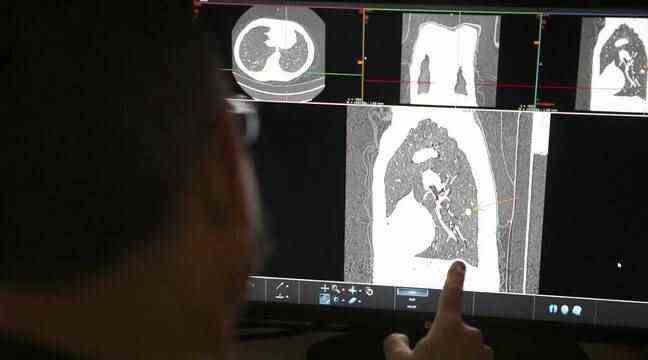Nearly 382,000 new diagnoses each year in France, approximately 10 million deaths per year worldwide: cancer is all around us. Even if it is treated better and better today, it is still complicated to diagnose, as shown by the numerous testimonials from readers addressed to 20 minutes before the
world cancer day, organized this Friday, February 4. Because if some report symptoms, sometimes very different, others ensure that their cancer was discovered during routine checks… Or even completely by chance.
“Most often, cancer is announced by “non-specific” symptoms, or by a deterioration in general condition, explains Eric Solary, president of the scientific council of the ARC foundation, devoted to cancer research. It is very, very variable: the symptoms differ according to the location of the tumor, and there, the list is long. Marie, diagnosed with a brain tumor in 2020, speaks of “very violent headaches that lasted a few seconds, vomiting, loss of balance, very severe fatigue, weight loss and discomfort”. She adds: “We know it, we feel it, that we have cancer. »
Marion, who discovered her cancer at the age of 23 “by typing her symptoms on the Internet”, suffered from “night sweats”, was emaciated (-17 kg in three months), and had “a huge iron deficiency”. Our readers also mention bleeding, generalized fatigue, or the appearance of “small lumps” or “masses”, such as Anseaulme (on the face), Audrey (on the right breast) or Muriel (under the lobe of the left ear).
Diagnosed at the dentist or after a skateboarding accident
“The cancer can be totally asymptomatic at the start, however, adds Eric Solary. It does not necessarily give clinical symptoms, or else these are not necessarily identified. “Michel, 76, explains that his lung cancer was discovered in 2014 by his GP “during a routine visit”: “The stethoscopic auscultation suspected respiratory discomfort when I felt no particular symptoms. This was followed by a control by radio and then by scanner, and intra- and extra-pulmonary samples confirmed the presence of a double cancerous tumour. »
Elena, she was diagnosed at the end of 2017 thanks to… her dentist: “My gums did not stop bleeding, like a tap. When I went back to see my dentist, she treated me and prescribed me a blood test to understand what was going on. The next day, I found myself in Marseille, where I was diagnosed with type 3 myeloid leukemia.” Claire, for her part, says that her 15-year-old son’s cancer was discovered after tests related to a “skate accident” which injured his knee.
“It is essential to avoid being an ostrich”
For Eric Solary, these coincidences show “all the interest of following screening campaigns “. In France, women have the option of having mammograms every two years between the ages of 50 and 74, and are encouraged to have regular Pap smear screenings. Men, too, can have access to colorectal cancer screening every two years between the ages of 50 and 74.
Our readers echo the researcher: Jean-Michel, for example, discovered his colon cancer following a test received by mail. “For once, I did it,” he says. Early detection definitely saved my life. “Catherine, she discovered her invasive melanoma “by going for a routine screening” at the age of 37, after several years without having consulted. Several of our readers have also resorted to “self-examination”, such as Isabel, who says she was “lucky to find it following the awareness of Pink October”.
“Nearly 50% of the population follows free screening campaigns,” specifies Eric Solary. It’s hard to talk about cancer to people who don’t have it, but with clinical progress, we can only encourage them to get screened. The earlier we intervene, the greater the chances of recovery. It is essential to avoid being an ostrich, because there are no good means of detecting cancer today. The chairman of the scientific council of the ARC foundation adds that, if we plan an increase of nearly 40% in the number of cancers on a global scale by 2050, due to the general aging of the population, “we expect a reduction in the number of deaths from cancer”: “We hope to cure two out of three cancers in five or ten years, compared to 60% today. »

